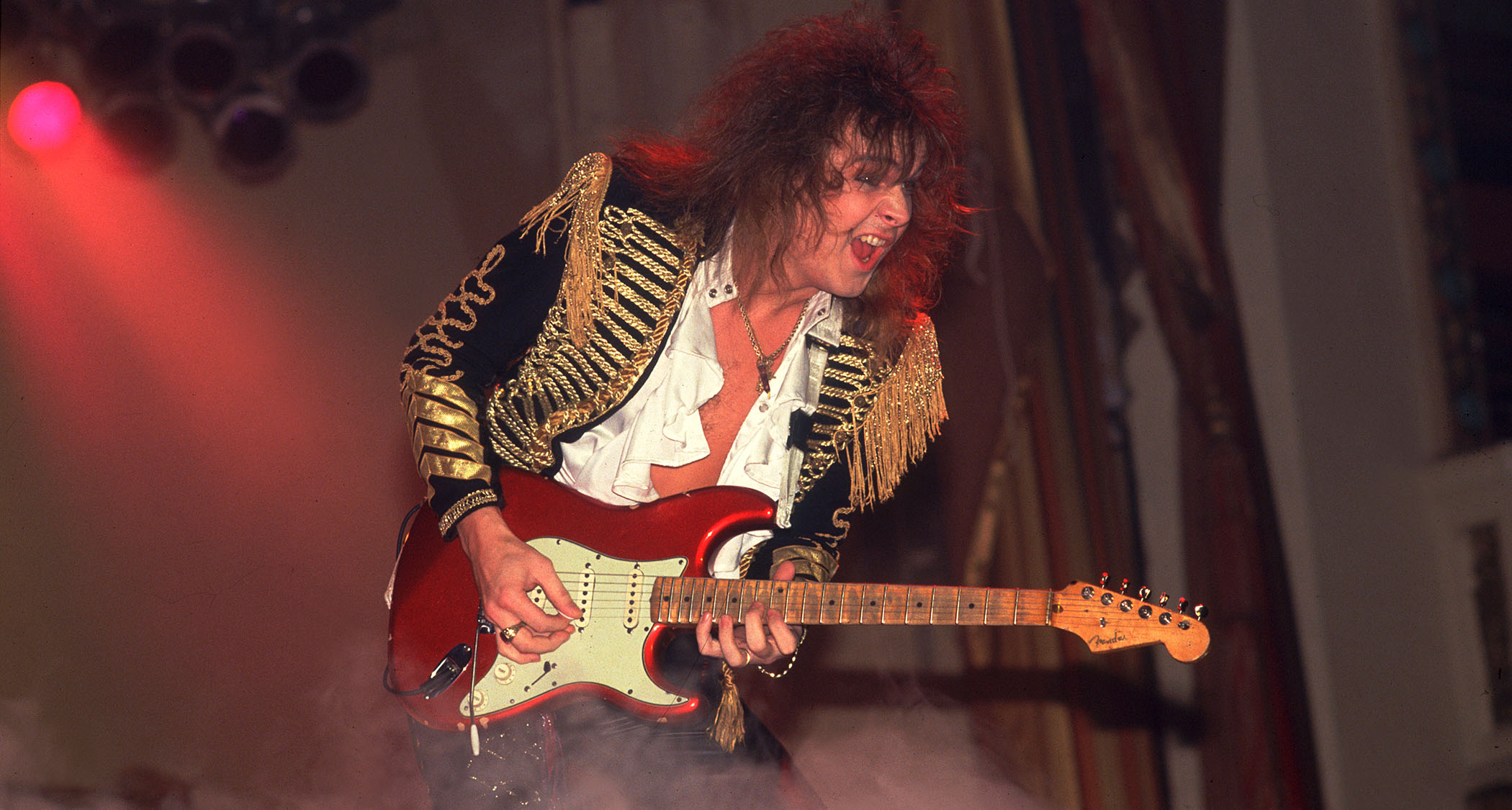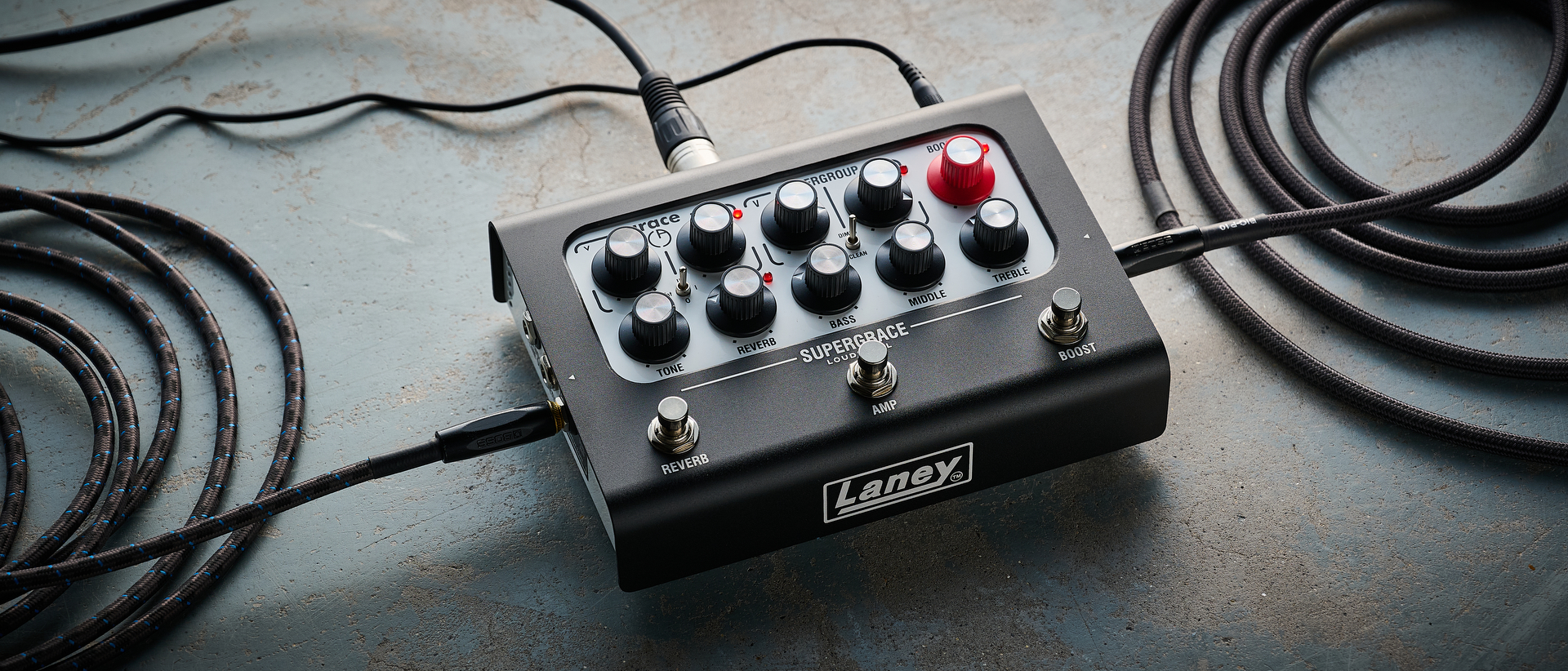“People forget that in the ’80s, the Fender Strat was like having an old car and someone saying, ‘Why are you driving that piece of crap?’” Yngwie Malmsteen explains how he broke the mold for rock guitar – and brought the Strat in from the cold
After the one-two punch of Rising Force and Marching out, rock guitar was never the same again. Malmsteen takes us back to 1985 – a different world – to explain just what was going on

All the latest guitar news, interviews, lessons, reviews, deals and more, direct to your inbox!
You are now subscribed
Your newsletter sign-up was successful
Yngwie Malmsteen will be the first to tell you that 1984’s Rising Force wasn’t supposed to be a hit. But it definitely was – and the young Swedish virtuoso’s unexpected success led directly to the recording of a second album, 1985’s Marching Out, and a world tour.
Malmsteen describes Marching Out as “quickly thrown together,” which didn’t seem to matter, as it climbed to Number 52 on the Billboard charts. According to the shredder, the lightning-rod success of his two first albums came via his laser focus.
“I did my thing,” he says. “Not because people told me to, but because that was what I thought I had to do. I never had other people write my songs. The bottom line is that it’s been a straight line. I always had a very clear idea of what I wanted. As a writer, guitar player – everything – I always ruled with an iron hand.
“At every corner I’ve turned in my life, I’ve had people telling me what they think I should do. But the reason I’m here now is that I didn’t follow people’s advice. To win the game, you gotta play the game. That’s still my thing, but not because people told me to do that. I did it because that is what I had to do, and I thought it was different.” On that note…
What are the origins of Marching Out?
“In January 1984, I signed a solo deal with Polygram in America. It was totally solo. I was touring in Japan with Alcatrazz, and they said, 'We must have a solo album,' so in July 1984, I left Alcatrazz. Marching Out was supposed to be my first solo record for Polygram.”
In the '80s, you didn’t release an instrumental rock guitar album. They didn’t exist. You had jazz instrumental albums, but not rock
Of course, you’d already released Rising Force in 1984.
All the latest guitar news, interviews, lessons, reviews, deals and more, direct to your inbox!
“Rising Force was supposed to be Japan-only, and Marching Out was supposed to be the first solo album. But, through word of mouth, people would go into Tower Records or whatever and spend $50 and wait two weeks for an imported version of Rising Force from Japan. It sold so many records without promotion – and it was, like, five times the price of a regular record – that it hit the Billboard charts.”
So Rising Force ended up making an unintended impact in America as an import, leading to Marching Out being your second record?
“Yeah. Polygram was like, ‘Oh, shit, we’ve got to put this record out…’ Basically, what was meant to be the first solo album in America, Marching Out, became the second one. Rising Force was a sensation nobody expected. We all know that if you don’t promote a record, it won’t sell. But it sold without promotion.”
In essence, Marching Out is a sister album – or spiritual successor – to Rising Force. It’s also worth noting that you made two solo guitar albums before such a practice was commonplace.
“In the Eighties, you didn’t release an instrumental rock guitar album. They didn’t exist. You had jazz instrumental albums, but not rock. I can’t think of anyone of significance before Rising Force and Marching Out [ed., both of which include a mix of instrumental and vocal tracks featuring Jeff Scott Soto]. When they told me to do a solo album when I was in Alcatrazz, they said, ‘No, we only want you to play guitar.’ It’s really weird. People now take it for granted because it’s normalized.”
In one fell swoop, you kicked off the shred and instrumental guitar era.
“Look at Van Halen, Jimmy Page or whoever; they didn’t do instrumental records. Think about this now for a second… by accident, it turned out to be like a blueprint for guitar albums.”
When did you start to understand the impact you were having?
“When I was inadvertently touring for two albums after the extreme success they created without any promotion. Rising Force went into the Billboard Top 100 without even being fucking released [in the U.S.]! Have you ever heard of that? It wasn’t even in stores. You had to go into a store and say, ‘Can you order this album for me?’ That’s how many fucking freaks went out and bought it. [Laughs]”
Did you feel the same wave of success with Marching Out?
“Yeah, but there’s an important thing; with that album – and people misunderstand this – it was never a band. In January 1984, I signed a solo-artist deal. Every single album I’ve made since then has been a solo record. I hired singers and musicians, but they were solo albums. However, some of the people who were hired to take part in these recordings have gotten this strange illusion that they were part of a band, which they never were.”
That aside, we can’t forget that you had a hand in shining a light on the Strat at a time when shred sticks were favored.
If you didn’t have a f**king Floyd Rose, it was like, ‘What the fuck are you doing?’ Literally, unless you were, like, a blues player, no one was playing Strats
“The Strat was about as ‘out’ as you could get! That’s another thing that people forget. In the Eighties, the fucking Fender Strat, oh, man, like, dude, it’s like having an old car and someone saying, ‘Why are you driving that old piece of shit, man?’ If you didn’t have a fucking Floyd Rose, it was like, ‘What the fuck are you doing?’ Literally, unless you were, like, a blues player, no one was playing Strats.”
Would you change anything about Marching Out, given the chance?
“I gotta be honest… that album was thrown together really quickly. There are some highlights on there and some really good songs. There are a couple of kinds of filler tracks… almost – but I don’t regret anything because it’s all a learning curve.”
What does Marching Out mean to you?
“You know me. At the time, in 1985, I had a very clear idea of what I wanted to do. I wanted to do, like, heavy metal, you know… lean more toward heavy metal and have an instrumental record. That’s what I wanted to do – and I did it.”
- This article first appeared in Guitar World. Subscribe and save.
Andrew Daly is an iced-coffee-addicted, oddball Telecaster-playing, alfredo pasta-loving journalist from Long Island, NY, who, in addition to being a contributing writer for Guitar World, scribes for Bass Player, Guitar Player, Guitarist, and MusicRadar. Andrew has interviewed favorites like Ace Frehley, Johnny Marr, Vito Bratta, Bruce Kulick, Joe Perry, Brad Whitford, Tom Morello, Rich Robinson, and Paul Stanley, while his all-time favorite (rhythm player), Keith Richards, continues to elude him.
You must confirm your public display name before commenting
Please logout and then login again, you will then be prompted to enter your display name.





